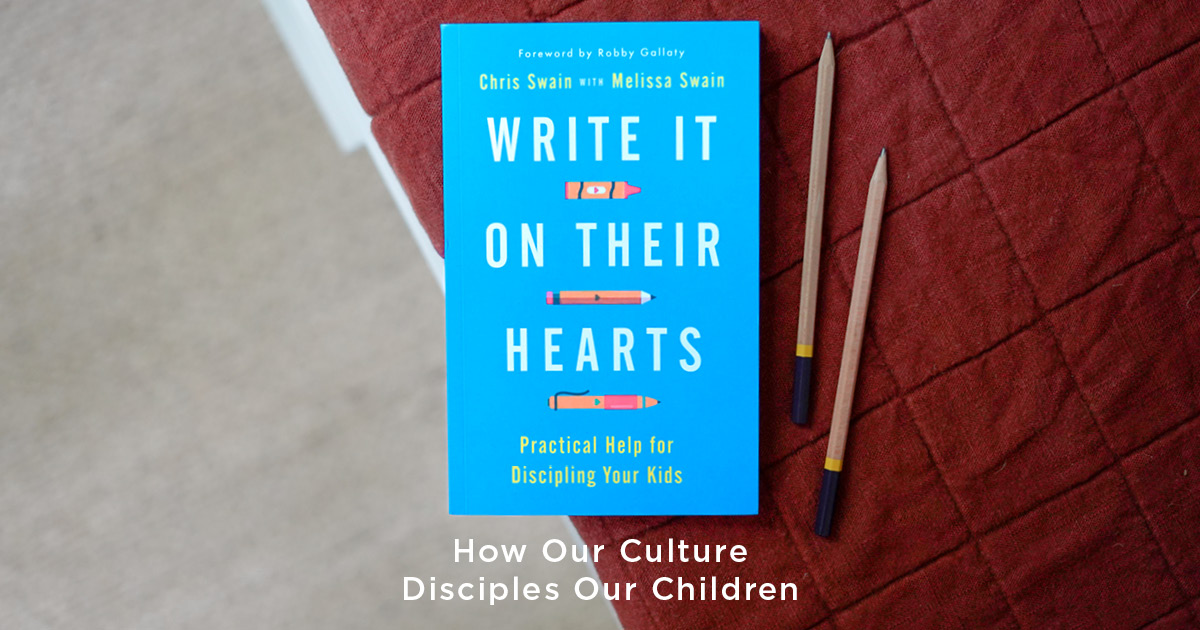
Parenting is tough but add to that the difficulty of being a Christian parent in a post-Christian culture, and even the easier elements of parenting are dialed up to the highest difficulty in this day and age.
Teaching your children to walk pales in comparison to teaching them to walk with wisdom in a world flooded with foolishness. Likewise, teaching your children to talk and use proper grammar is child’s play compared to teaching them to be slow to speak, and to do so with grace and humility amidst the godless banter of modern media.
This post-Christian culture is a monumental challenge, but it is nothing new. Thousands of years ago, the world’s greatest ruler set out to conquer Jerusalem. He had the largest army, the greatest tactics, and all the resources he would need to accomplish the task ten times over.
But instead of overwhelming the city with force, he did something very different. He came bearing sacrifices to Jehovah.
Teaching your children to talk and use proper grammar is child’s play compared to teaching them to be slow to speak.
Alexander the Great used a brilliant method to conquer the culture. He didn’t come to destroy the societal norms and traditions; he came to celebrate them. But there was a caveat: he introduced exciting new elements to the mix.
Mr. The Great was OK with whatever it is you held as important, he just wanted to share some intriguing new stuff that your people were sure to love. And by doing so, he introduced four specific means by which he ultimately integrated you into his empire.
Theater and the arts were a critical piece of Alexander’s strategy. Popular culture crafted shared experiences that fostered a new mindset in the hearts of the people. While often indirect, entertainment is most commonly a commentary on culture. The real question is, who is crafting the commentary, and what are they trying to say through it?
In our modern world, we have access to information instantly. We can quickly access even the vaguest information within seconds on our phone or device. But in the time of Alexander the Great, things moved much slower. Couriers had to deliver messages from town to town. Often, critical information would take days or weeks to reach various cities. It isn’t hard to imagine the power someone could wield if they had control over this information network.
We see it in our world every day. What news channel do you trust? Whose version of the news is more accurate? We typically like our news filtered by whoever leans our way politically. But Alexander was in control of the news quite literally. Not only could he determine when people heard what was going on, he could also shape the narrative.
Imagine the children gathering to listen to the Rabbi consistently, their free time filled with elements that engrained what it meant to be Jewish. When Alexander the Great brought sports into the culture, the focus shifted from things of eternal consequence, to the story
about the fastest runner in all the known world.
While there are no perfect parents, there is a perfect God.
As an avid lover of football, it is all too easy for me to see how the insignificant pass-time of sports can occupy my thoughts and lead to distraction. I’m not trying to create a feeling of guilt here, but perhaps you too can sense the ease with which things like sports can affect a culture.
When children learned in Jerusalem, they learned of their heritage. They were taught the Torah (the first five books of the Bible) as well as important moves of God through the ages. Alexander didn’t tell the people to stop teaching these things he simply brought new information to add to the mix.
What about the other gods celebrated across multiple cultures? Alexander encouraged those as well. Education shapes children’s minds, that is no surprise. But when education is institutionalized, there is always a narrative framework by which educators work.
Alexander knew that if he could reach the children, generations to come would move farther away from their existing culture to embrace his new one.
Alexander the Great’s method for assimilating cultures was so effective that he became one of history’s most powerful rulers. It doesn’t take a genius to look at our current post-Christian culture and realize that perhaps we too have been enveloped in a modern version of Hellenism.
For parents trying to raise disciples of Jesus, we must be hyperaware of the methodology of the enemy to distract and derail us. We live in a vulture culture that has an agenda to prey upon our children. It is subversive, and it is effective.
The good news, parents, is this: we have hope. And not just hope, but The Hope of Glory, Jesus Christ in us. While there are no perfect parents, there is a perfect God.
Jesus provides us with a purpose and a plan. So, while the odds aren’t in our favor, Jesus is the one who makes the way for us to succeed. I’ll take those odds any day.
This article is adapted from Write It On Their Hearts. In this book, author and pastor Chris Swain and his wife Melissa apply the principles of discipleship that Jesus teaches in Scripture to the family context to help parents make the most of the time you have with your kids, to both lead them to Jesus and to encourage them to be like Jesus in a Hellenistic world